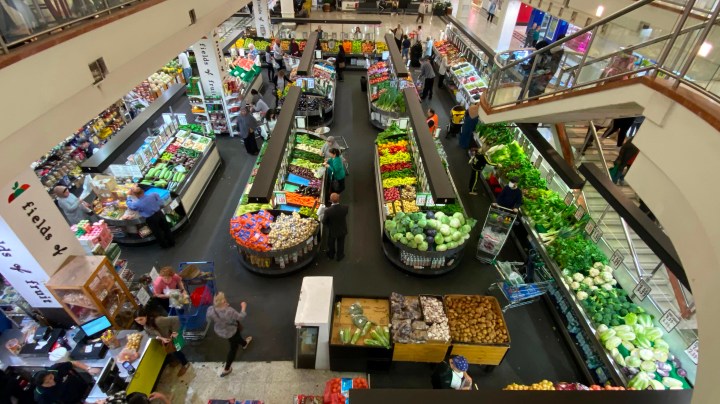
Seeing empty grocery store shelves? Here’s why.

Grocery store shelves are going bare as people prepare for self-isolation during the COVID-19 outbreak. Shelves are empty mostly because of logistics, getting food from manufacturers to warehouses to stores.
Ananth Iyer directs the Global Supply Chain Management Initiative at Purdue University. He says do not worry about the food supply itself. The grocery industry has up to four months’ supply of staples like beans, rice and canned goods.
“And that is a cushion that keeps this entire system going,” Iyer said.
Fresh foods don’t have that cushion. Grocers can’t stockpile them, and farmers can’t make them grow faster. A chicken takes three to four months from hatch date to dinner plate. So too much demand now may mean that the supply won’t keep up.
“We may change what we eat. We may move from more fancy foods to more basic foods,” said Miguel Gomez, professor of agriculture economics at Cornell University. He adds this could also happen to food we import.
“Global supply chains, because they are longer, they are more likely to be disrupted than domestic supply chains,” Gomez said.
In other words, things like avocados, bananas and coffee could become harder to find if this continues for months. But they’re also things we can live without.
There’s a lot happening in the world. Through it all, Marketplace is here for you.
You rely on Marketplace to break down the world’s events and tell you how it affects you in a fact-based, approachable way. We rely on your financial support to keep making that possible.
Your donation today powers the independent journalism that you rely on. For just $5/month, you can help sustain Marketplace so we can keep reporting on the things that matter to you.












